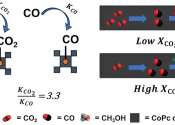Salad chain says a cleaner farming method will offset adding steak to its menu. What is it?
Salad chain Sweetgreen is adding steak to its menu, an announcement that led to strong reactions online, with customers questioning how that would impact the company's carbon neutral plans.









